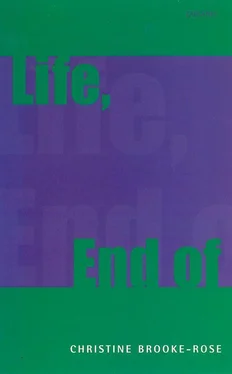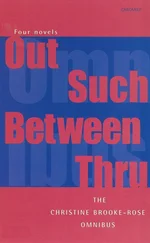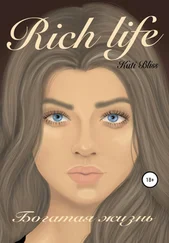Christine Brooke-Rose - Life, End of
Здесь есть возможность читать онлайн «Christine Brooke-Rose - Life, End of» весь текст электронной книги совершенно бесплатно (целиком полную версию без сокращений). В некоторых случаях можно слушать аудио, скачать через торрент в формате fb2 и присутствует краткое содержание. Год выпуска: 2012, ISBN: 2012, Издательство: Carcanet Press Ltd., Жанр: Современная проза, на английском языке. Описание произведения, (предисловие) а так же отзывы посетителей доступны на портале библиотеки ЛибКат.
- Название:Life, End of
- Автор:
- Издательство:Carcanet Press Ltd.
- Жанр:
- Год:2012
- ISBN:9781847775726
- Рейтинг книги:5 / 5. Голосов: 1
-
Избранное:Добавить в избранное
- Отзывы:
-
Ваша оценка:
- 100
- 1
- 2
- 3
- 4
- 5
Life, End of: краткое содержание, описание и аннотация
Предлагаем к чтению аннотацию, описание, краткое содержание или предисловие (зависит от того, что написал сам автор книги «Life, End of»). Если вы не нашли необходимую информацию о книге — напишите в комментариях, мы постараемся отыскать её.
by a master of experimental novels finds the author reflecting on her old age and its effects on her writing. As she reflects on her own career, her experiments with narrative, and on the narrative she writes here, she ultimately reasserts herself and accepts the life behind her.
Life, End of — читать онлайн бесплатно полную книгу (весь текст) целиком
Ниже представлен текст книги, разбитый по страницам. Система сохранения места последней прочитанной страницы, позволяет с удобством читать онлайн бесплатно книгу «Life, End of», без необходимости каждый раз заново искать на чём Вы остановились. Поставьте закладку, и сможете в любой момент перейти на страницу, на которой закончили чтение.
Интервал:
Закладка:
But no, why make a profit and loss account of it? Even loss can become profit.
Until more recent, quite personal, quite minor losses, from subliminal to ridiculous, since every new movement and effort is now supposed minor, compared to those of life. They occur by ill luck rather than illness.
First, this summer, the total erasure of this text, but earlier, before the fall, some sixty pages, worth several weeks’ work at this new slow pace of living, fighting against the rending anginal pains. But, just as slowly, reconstructed. All objects therapeutic must be kept, for a successful result.
(Is that not an ongoing business, home-grown?)
Second, the address-book. There are two, one for local numbers and addresses, the green leather one for all the others. After the fall Valérie later brings it in at bedridden request, for cheering phone-calls. Then it vanishes. She crouches and moves the low chests of drawers on either side of the bed. Nothing. All the friends of a lifetime, now inaccessible. Presymbolic, hey?
Trying to keep calm with ancient knowledge, that every object lost inside the house, with no sorties, always turns up. Ça turnupera, is the family’s joke-phrase. Et ça turnupe, though often months later.
When they deliver the uncomfortable pseudo-ergonomic bed and take away the painless other, the dark green address-book falls to the floor, after being wedged between two bits of the old one. Relief floods the brain like a haemorrhage. A few days later the local address book, from the freezer firm, covered with balls of ice-cream in different colours on cardboard, also vanishes. And is found by an English True Friend called Lobby (Lobelia?) who, based on London, has a house in the village. She has the strength to move the office desk and all it holds. And the generosity to help out at any moment. But our friendship is so far based on regular fun-lunches out, in her car. Will it survive mere one-way helpfulness? Or is handicap too demanding, making normal fun-exchanges less valid? Her every gesture raises something like: It is essential, but difficult, to be intelligentle.
So it’s not all loss, some of it is false alarm. As with O.P.s. And due to old age after all, the forgetfulness of it.
Is all this part of the ante-rehearsal, learning not to speak of pain, doctors are made for that, a progressive annulment of everything, a cleansing system that accompanies even future degradation of the body and all faculties? Like the progress from house to room to bed to coffin? From table to tray to trolley to templates?
Of course all things die, some fast, like flies, some slowly, like languages, like empires.
So why is the cogitation constantly reduced to generalities? But then, so are the thoughts of the young. Of most people, most of the time. Because the world-wide and the general hurt less than the personal and the particular? Or because the mind is looking only in two directions, the self, and to counter that, the world. Totally filtered, yet more kaleidoscopic than ever, a clustering world, that prevents the looking-glass from looking. And there is neither love nor hate behind them, on account of the pineal gland being a parasitic growth with ill-reflecting melanin?
Short break, an imagined conversation with the doctor about crepitating fires in the legs, nothing now to do with Vasco de Alarmer, tingling and increasingly clumsy hands: could the polyneuritis of the extremities be reaching the other extremities, the hands and arms? — Not necessarily — I take it that means perhaps? No. This is megalo. Yet surely no scientist can be that vague. Or is it the beginning of Parkinson’s?
The question about on-going business home-grown is clearly author-interference. Breaking in to the I-less narrative sentence with the self more than implied.
Or does it all start with the erasure of the text? A warning? From whom? Or with all these questions in Speech Mode? Could the infirm character be slowly merging with hisher author? A mere mirror? And if so why the devil or wolf doesn’t heshe use the freer and self-comforting first person, as everyone else does now?
This is a time of illusions.
For some months, long before the fall and the bedriddenness, come surprising visitors. One at a time always. Or no, two once. Quite visible, even the colour of clothes and the smiling or anxious look as he or she approaches the bed softly and stares down. Never touching the bed. Occasionally known, like Valérie, or, the doctor once, or mostly clear yet indefinable men or women, bringing a touch of fear.
At the first one the immediate thought is about the gates and door: how? But now the visitors are accepted as licit, if strange, and as the stare is returned she dissolves. Into the dark. He never comes by day. For a while the light is at once switched on, and by then she’s vanished. The fear too has gone, and soon the dark is kept and the stare returned until the vanishing. Hallucinations?
What does it mean? This is the first time ever. Is it part of the polyneuritis? Is the brain at last being touched? Is it a vision of awaiting angels, theologically dubious? Or is it Creutzfeldt-Jakob, the doctor is once asked, anxiously, long ago, for the symptoms are the same but the end far more atrocious. No, that’s the central nervous system, yours is the peripheral. Just like life. Unless that’s her second way of not answering. Especially if she’s silently diagnosed early Parkinson’s, which, however, is also central, says the physio.
Presumably they’re waking dreams, in a waking-flash forgotten as eyes open. But why should dreams, even waking, always be about concerned visitors? Wishful dreaming? Clearly yes, since all waking dreams are wishful, unlike deeper dreams that touch on, yet conceal the truth, but this dream seems truly trivial, and trivially untrue. Life is now organised around minimum needs, and the few people concerned are charming and lively, but not doing anything they’re not being paid for. Well, the present reduction and banality of life is perhaps being duplicated in dreams and that, after all, is quite natural.
Montaigne says life’s purpose is to teach us to die. However, the standard of teaching is now so low that the task is getting tougher and tougher as more and more people among the six to nine billion rightly have access to it. Not an insoluble contradiction, but still unsolved. Moreover this ideal aspect of the teaching is odd, unfamiliar to the would-or-wouln’t-be learners, too far away, like early equations and theorems to a child of twelve, discovering for the first time that maths is more than round sums and square roots, and the QED coming much later.
Since the fall, however, there’s an even odder experience. It happens when lying in bed, either in the dark, or eyes closed, then opening. Every time it’s the bedroom of the previous house that surrounds the bed. The previous bedroom is the one moved into on the precious advice of those True Friends from Germany. Until then given to guests.
The haunting of that finally chosen room is very strong. There the bed faces the terrace door south, with another glass door, west, where the cheerful postman comes, with real thudding letters still, and a lane down into the garden where neighbours can be waved at and greeted. Here the bedroom has dark red walls, recalling Paris, but only one window. Facing the postman’s door is the eastern wall, with a white and yellow beaded curtain into the white and yellow bathroom, but also two more spaces, one for a winding staircase up to the wide studio and library and its view over the vines and cherry-trees, snow-white in March, itself with its own exit down onto the lane. The other stairs go straight down to the kitchen into the garden. So many openings. Just like life, which has its exits and its entrances. Here with the wall and its tall gates it’s a mini-citadel. The whole village seems made up into citadels. Curious, for one time sheep-farmers and wine-growers, this house being the ancient sheepfold of the larger group.
Читать дальшеИнтервал:
Закладка:
Похожие книги на «Life, End of»
Представляем Вашему вниманию похожие книги на «Life, End of» списком для выбора. Мы отобрали схожую по названию и смыслу литературу в надежде предоставить читателям больше вариантов отыскать новые, интересные, ещё непрочитанные произведения.
Обсуждение, отзывы о книге «Life, End of» и просто собственные мнения читателей. Оставьте ваши комментарии, напишите, что Вы думаете о произведении, его смысле или главных героях. Укажите что конкретно понравилось, а что нет, и почему Вы так считаете.












